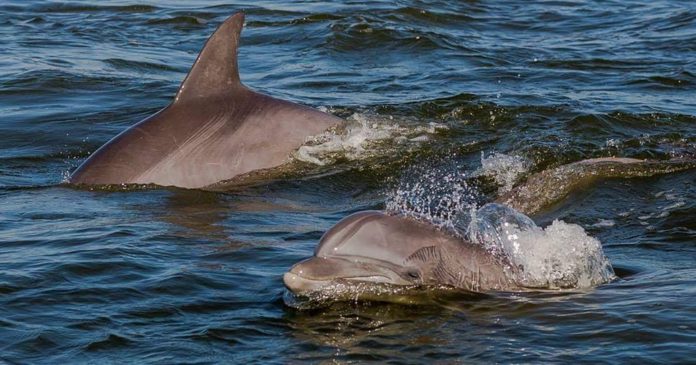According to a recently completed study, dolphins may be in serious trouble as our ocean temperatures rise with global warming.
After a heat wave struck the waters of Western Australia in 2011, scientists noticed that warmer ocean temperatures caused fewer dolphin births and decreased the animal’s survival rate.
The heat wave caused the water temperature of an area called Shark Bay to rise about 4 degrees above the annual average. After the heat wave, the survival rate for some species of dolphins fell by 12%, according to a study published Monday in the journal Current Biology.
The dolphins also gave birth to fewer calves.
Researchers had noticed that the warmer waters killed a lot of seagrass, which drives the bay’s entire ecosystem. It provides food and protection for animals that live there.
Once researchers realized that the 2011 warm water event had such devastating consequences on the seagrass beds in Shark Bay, they wondered whether [animals] on top of the food chain might also be affected.
Even six or seven years after the heat wave, there was still no clear sign that things were back to normal — survival and reproduction were still lower, so these short term effects have long-term consequences on marine life.
It’s unclear what is causing the change in dolphin survival and birth rate. It may be because fewer newborns survived the higher temperatures. Dolphin parents may have been neglecting their offspring due to the environmental change. Or the heat could have delayed the animal’s sexual maturity. The team hopes to do more research to find out.
What worries the researchers is that this change in birth rate wasn’t only observed immediately after the year of the heat wave. They studied the dolphins that lived in Shark Bay between 2007 and 2017, and the decline in births lasted at least until 2017.
Scientists have long known that a warmer ocean is bad news for animals.
The warmth stresses the entire ocean food web. Warmer oceans hold less oxygen, which can cause massive fish kills. Corals, home to many fish and other sea creatures, are also extremely temperature-sensitive. Heat waves between 2016 and 2017 killed half the corals at the Great Barrier Reef, for instance.
It’s likely there will be many more ocean heat waves. Climate change is particularly hard on the oceans, which absorb 93% of the Earth’s energy imbalance.










